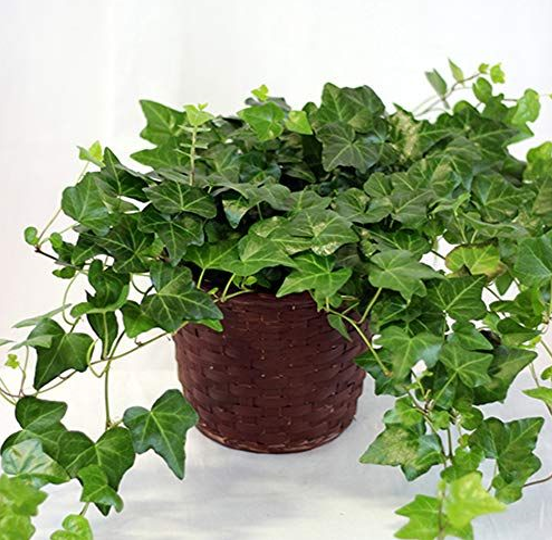English Ivy, or *Hedera helix*, is a versatile and popular evergreen vine known for its lush, green foliage and ability to thrive in a variety of conditions. It’s often used as ground cover, a climbing plant on walls or trellises, or even as a houseplant. The plant has small, inconspicuous flowers and berries, which are not particularly showy but can attract birds.
Care Tips
- Light: English ivy prefers bright, indirect light but can tolerate lower light conditions. However, insufficient light can lead to leggy growth and a decrease in leaf variegation.
- Watering: Water when the top inch of soil feels dry. Ivy prefers consistently moist soil but can suffer from root rot if overwatered. Ensure good drainage in the pot.
- Humidity: This plant enjoys moderate humidity. If the air is too dry, especially in winter, consider misting the leaves or using a humidity tray.
- Temperature: Ideal temperatures range from 50-70°F (10-21°C). Protect from cold drafts and extreme heat.
Potting and Soil
- Medium: Use a well-draining potting mix, such as a general-purpose potting soil. Adding perlite can improve drainage.
- Repotting: Repot every 1-2 years or when the plant becomes root-bound, typically in spring.
Fertilization
- Schedule: Fertilize with a balanced liquid fertilizer every 4-6 weeks during the growing season (spring and summer). Reduce or eliminate feeding in the fall and winter.
- Dilution: Always dilute the fertilizer to half-strength to avoid root burn.
Pests and Problems
- Common Pests: Watch for spider mites, aphids, and mealybugs. Regularly check the undersides of leaves and keep them clean to minimize pest issues.
- Leaf Issues: Yellowing leaves may indicate overwatering or poor drainage, while browning leaf tips can signal underwatering or low humidity.
Toxicity
English ivy is considered toxic to pets and humans if ingested, causing symptoms like vomiting and abdominal pain. Keep it out of reach of pets and children
Plant type: Evergreen Perennials
Scientific name: Hedera Helix
Plant Family: Araliaceae
Have a look at our outdoor plant collectionhttps://mfourgreen.com/product-category/outdoor-plants/

Reviews
There are no reviews yet.